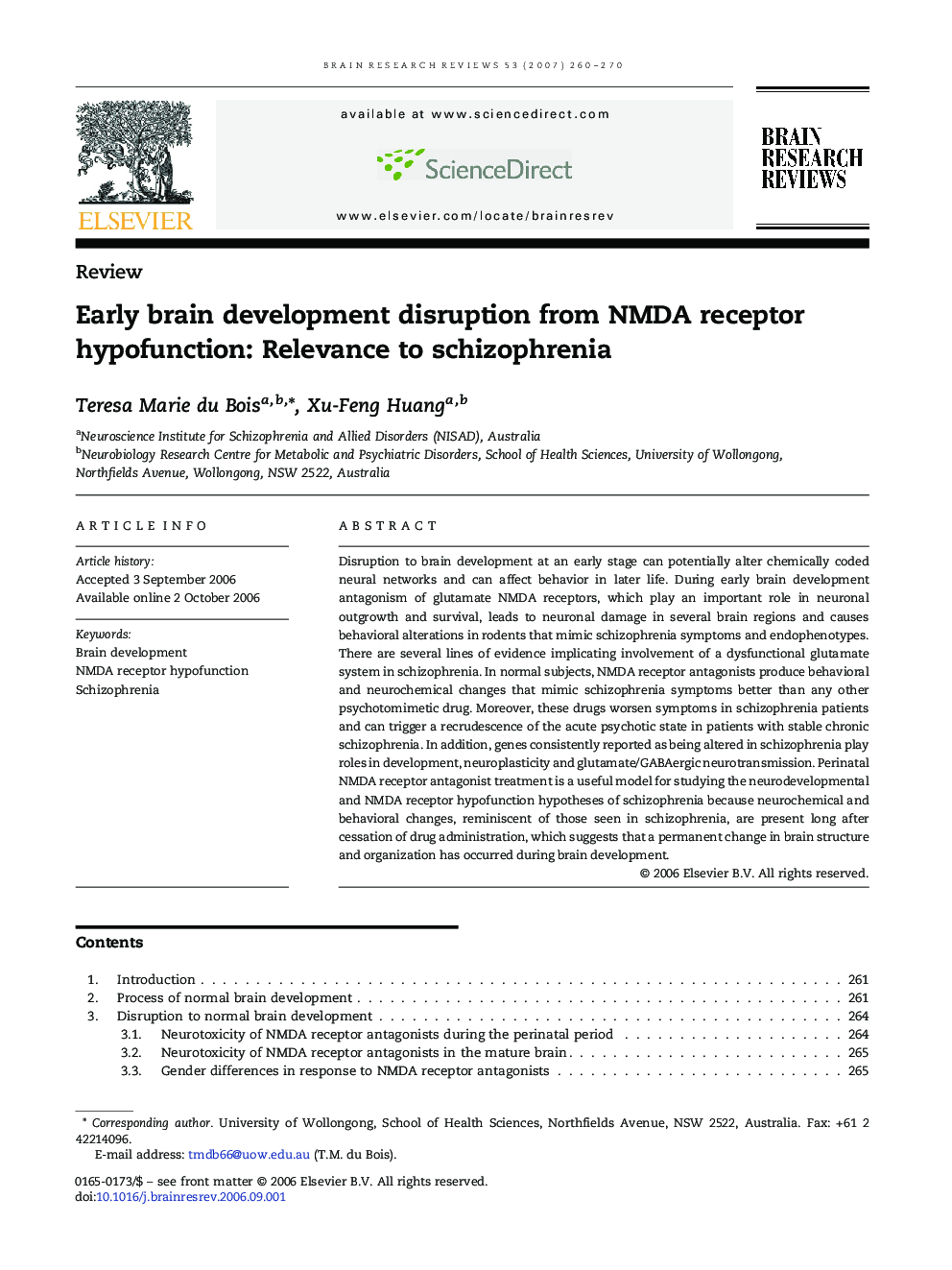| کد مقاله | کد نشریه | سال انتشار | مقاله انگلیسی | نسخه تمام متن |
|---|---|---|---|---|
| 4333978 | 1294761 | 2007 | 11 صفحه PDF | دانلود رایگان |

Disruption to brain development at an early stage can potentially alter chemically coded neural networks and can affect behavior in later life. During early brain development antagonism of glutamate NMDA receptors, which play an important role in neuronal outgrowth and survival, leads to neuronal damage in several brain regions and causes behavioral alterations in rodents that mimic schizophrenia symptoms and endophenotypes. There are several lines of evidence implicating involvement of a dysfunctional glutamate system in schizophrenia. In normal subjects, NMDA receptor antagonists produce behavioral and neurochemical changes that mimic schizophrenia symptoms better than any other psychotomimetic drug. Moreover, these drugs worsen symptoms in schizophrenia patients and can trigger a recrudescence of the acute psychotic state in patients with stable chronic schizophrenia. In addition, genes consistently reported as being altered in schizophrenia play roles in development, neuroplasticity and glutamate/GABAergic neurotransmission. Perinatal NMDA receptor antagonist treatment is a useful model for studying the neurodevelopmental and NMDA receptor hypofunction hypotheses of schizophrenia because neurochemical and behavioral changes, reminiscent of those seen in schizophrenia, are present long after cessation of drug administration, which suggests that a permanent change in brain structure and organization has occurred during brain development.
Journal: Brain Research Reviews - Volume 53, Issue 2, February 2007, Pages 260–270